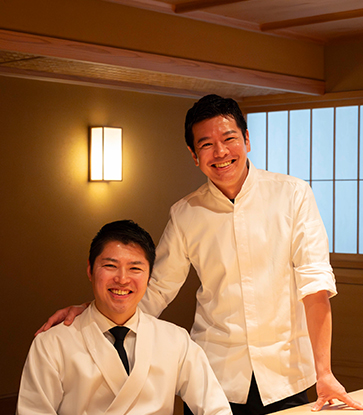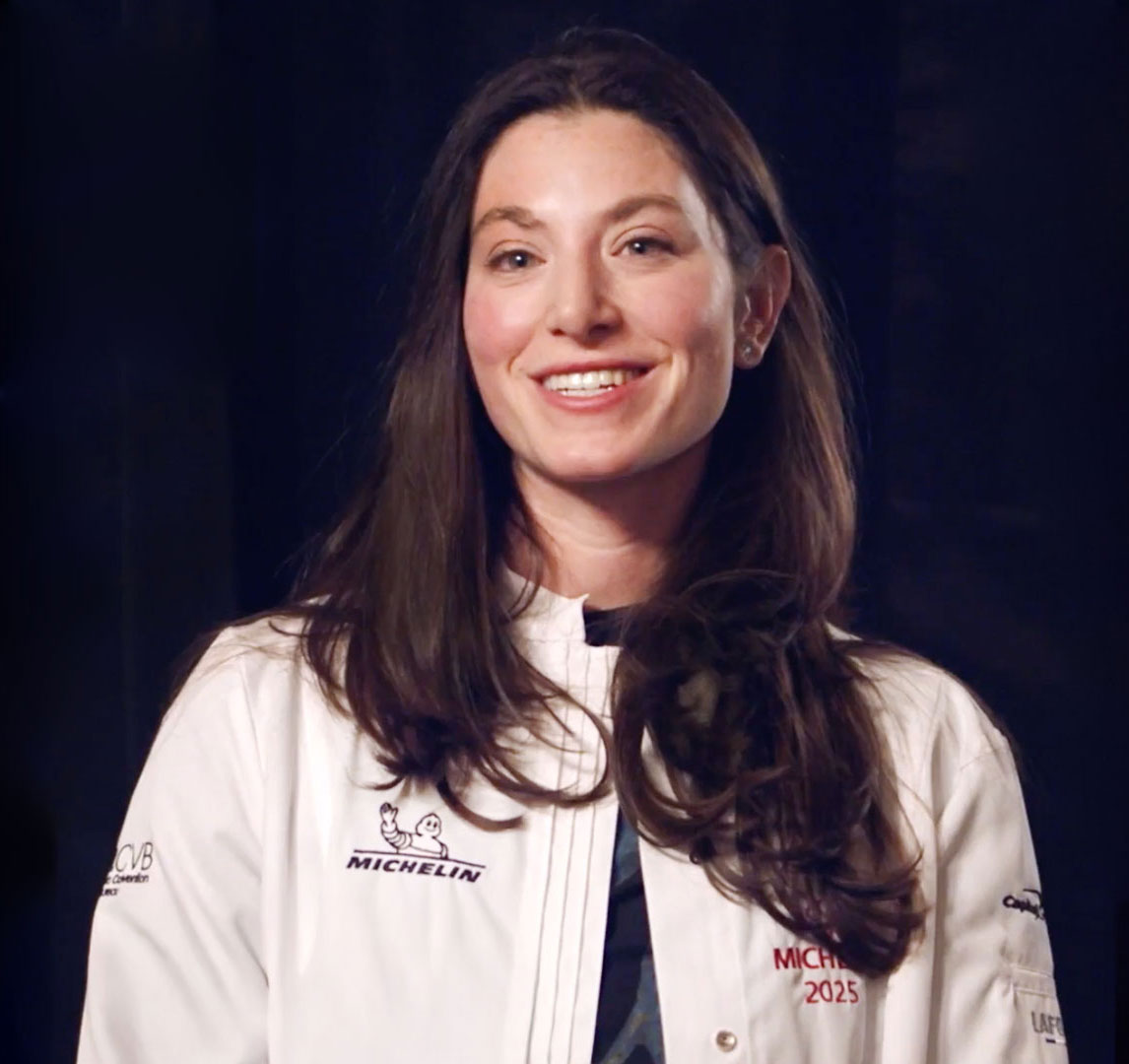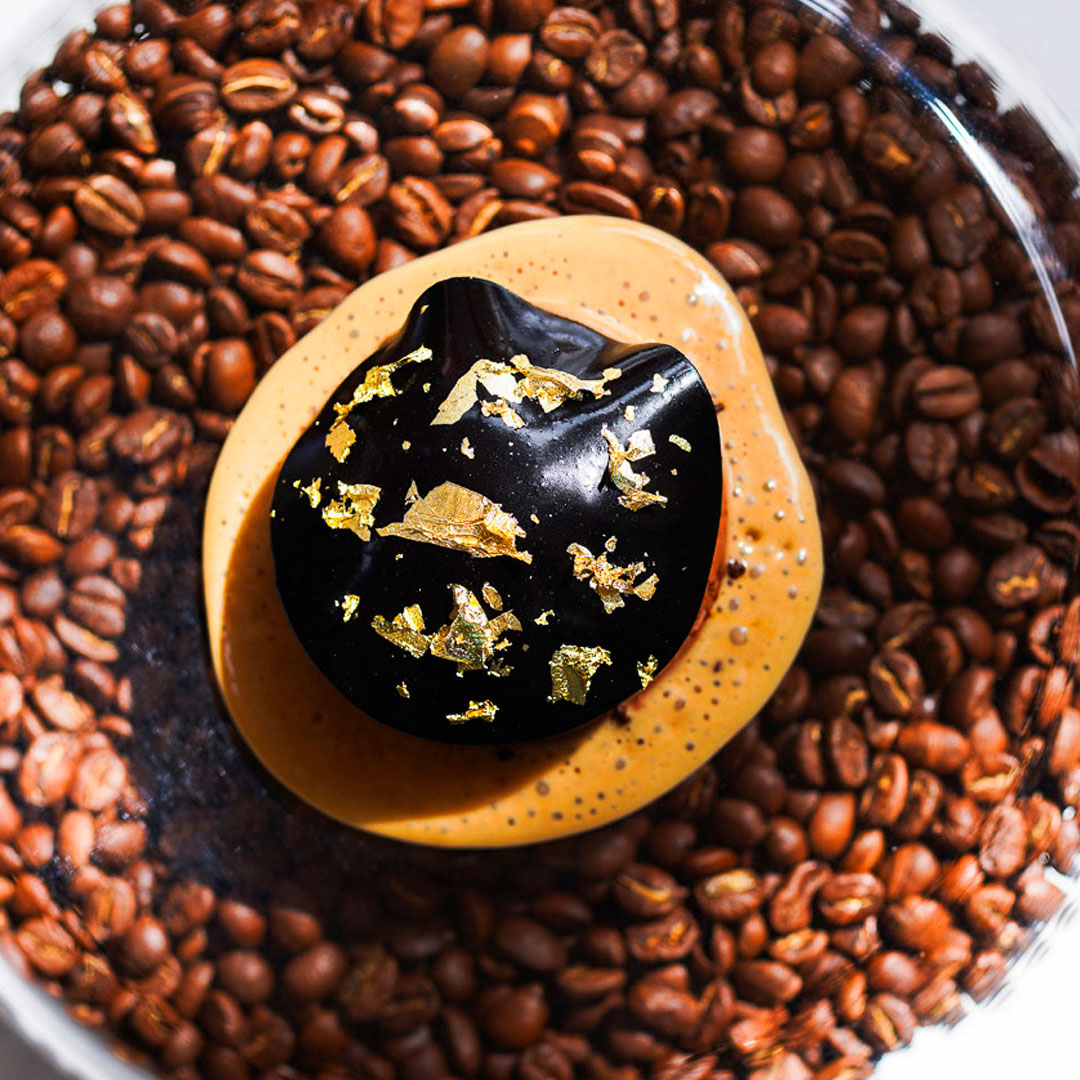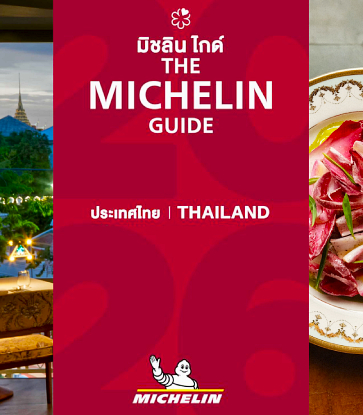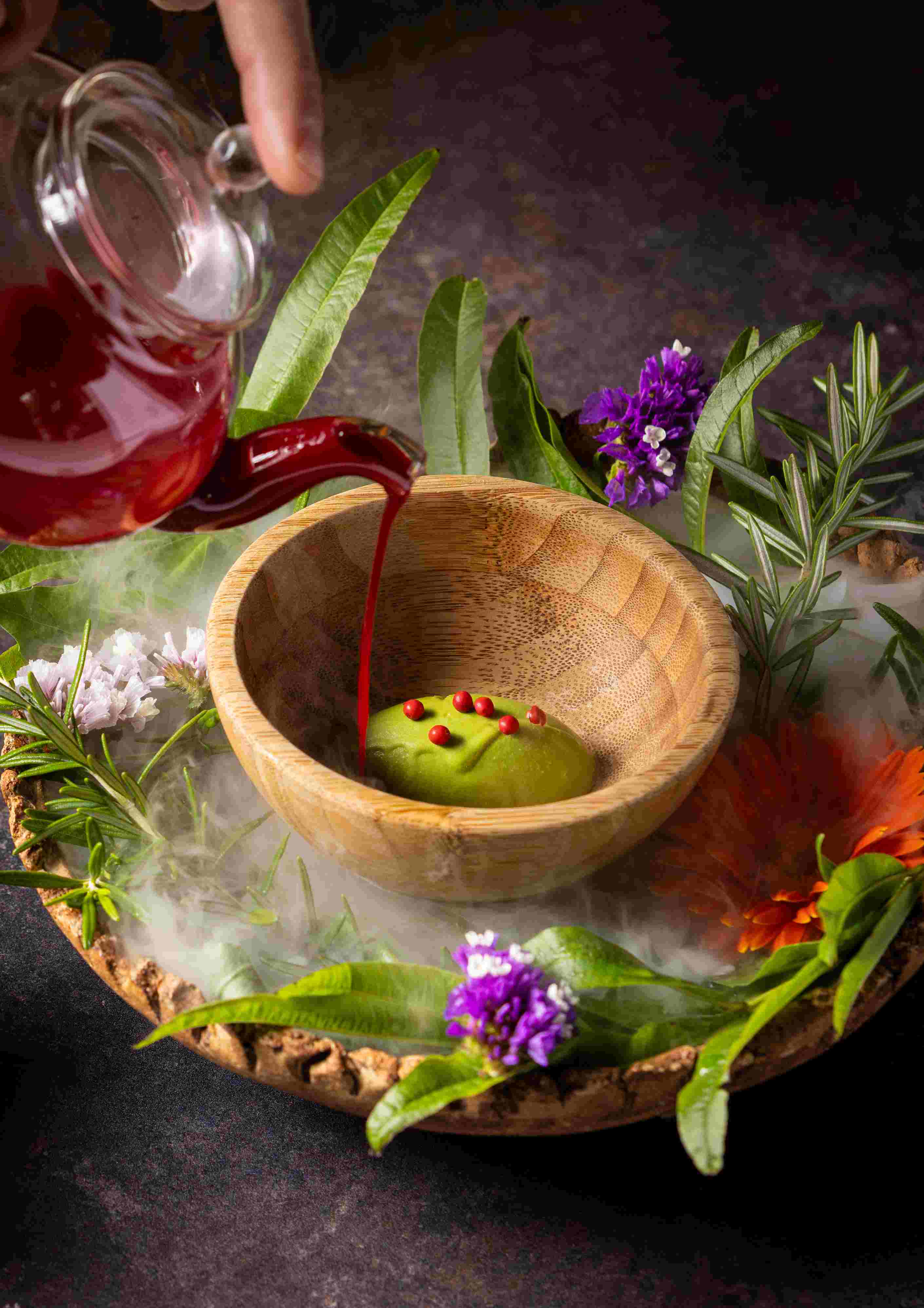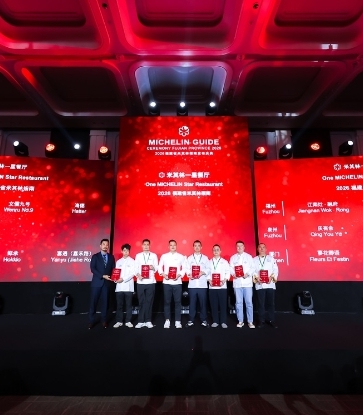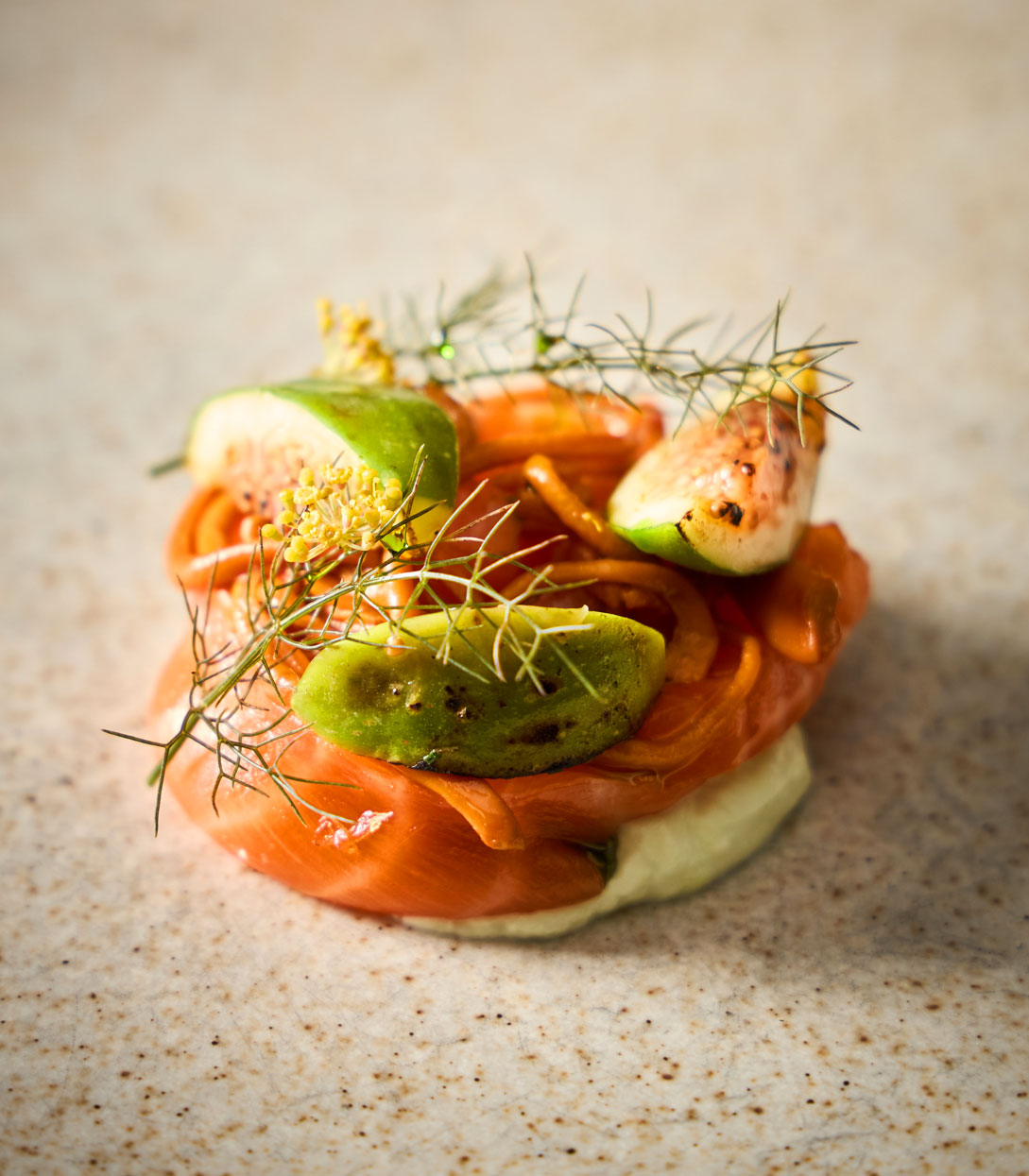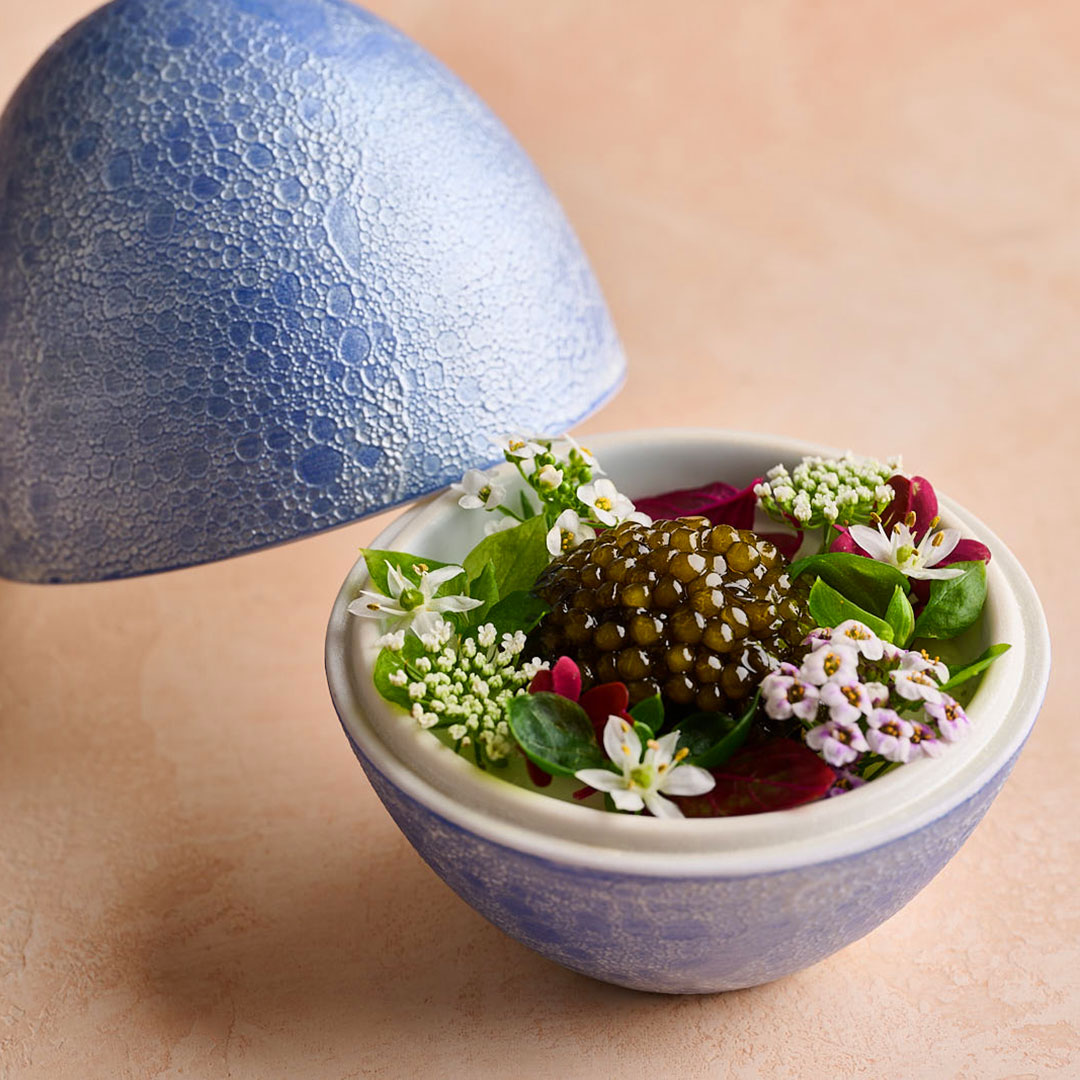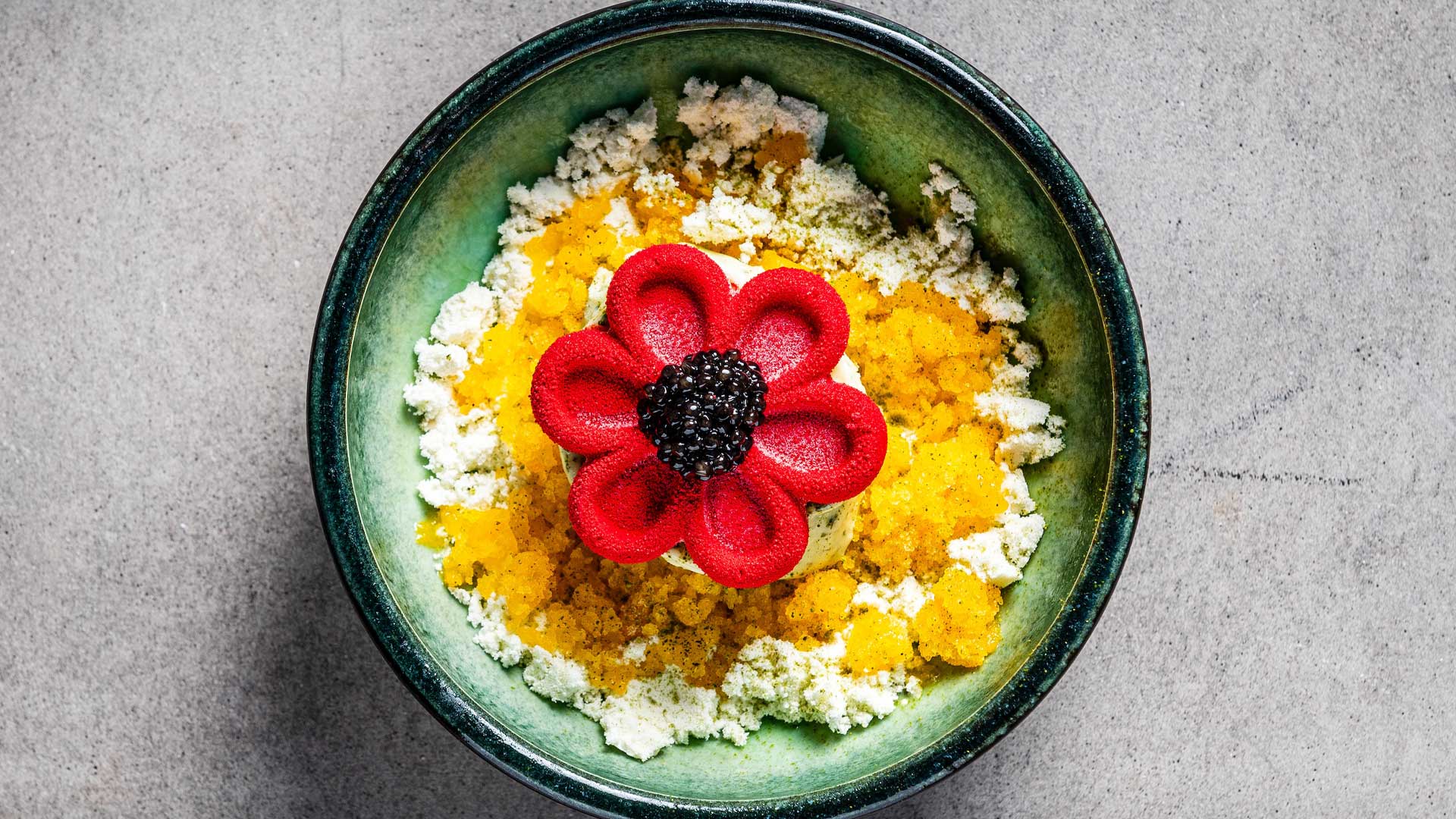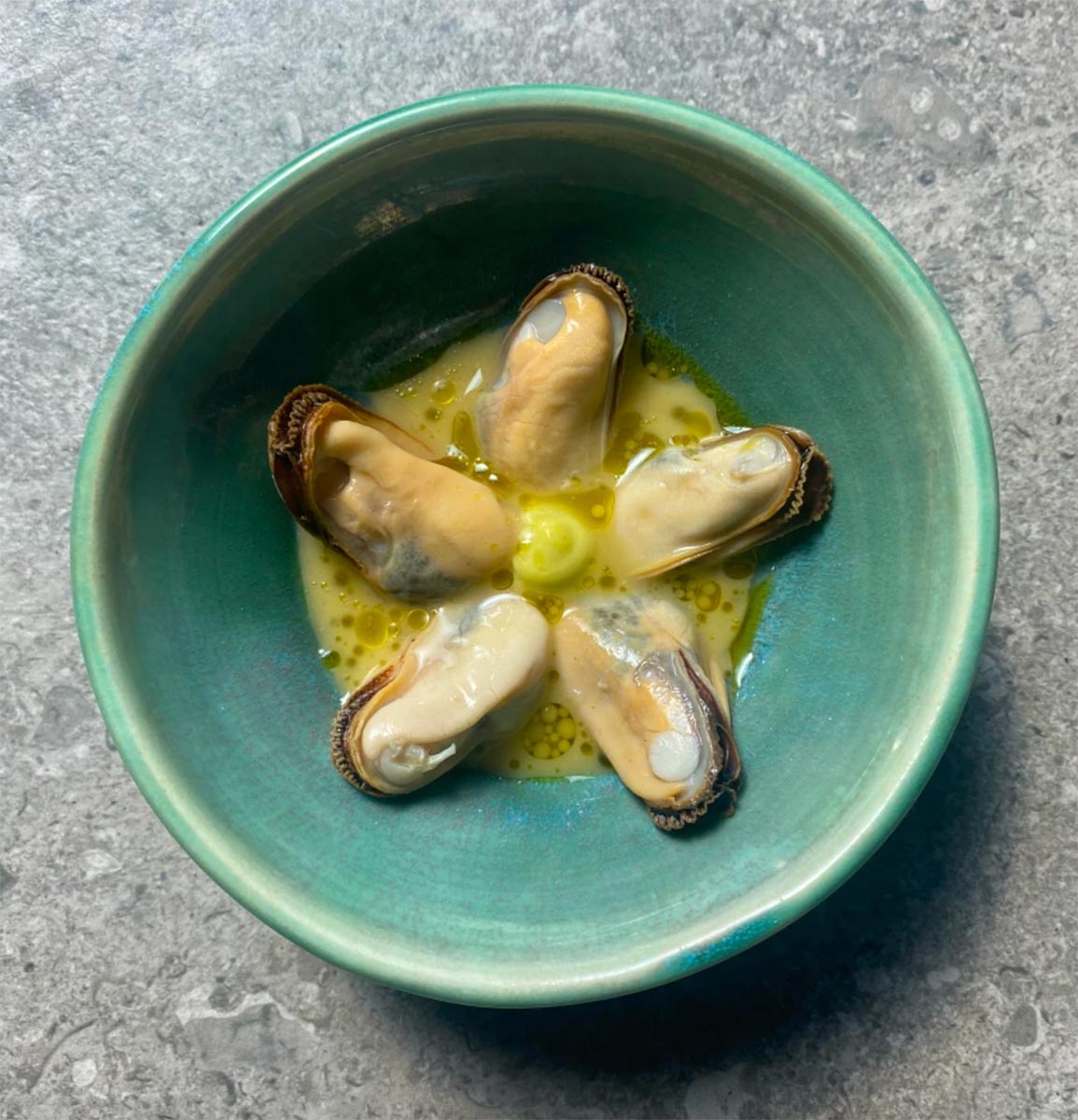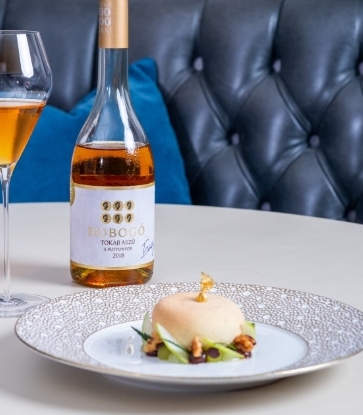“We were the first in our village to get a black-and-white TV and so after school and homework, all the children came to our home to watch this show”, recalls the chef. “I was deeply impressed by his stature, his charisma and his uniform, and after this period I started to say to my parents that I wanted to become a chef”.
Father Figures in Cognac

“It was a very hard time for me because I was very young and not used to that lifestyle. I wanted to give up, but my father brought me back to the restaurant and asked chef Pouilly to follow up on my training as strict as possible. My father didn’t want me to give up that fast”.
Cutting quite the father figure himself, chef Pouilly trained and guided the young Bouchet with a firm hand. “Chef Pouilly was very strict but very human, he taught us like his own children and allowed us to discover many important things: hunting, fishing, vegetable-picking… And he was an amazing sauce maker”. Vivid in his memory to this day is Pouilly’s then-signature dish of Jambon au Pineau, a ham cooked with a sauce of Pineau des Charentes, a fortified wine from the Cognac region.
On to the City of Lights
Upon graduating high school, Marcel Pouilly found Bouchet a position in Paris, at L’Elysée Bretagne under 70-year-old stalwart Gaston Napoléon. It was through Napoléon’s connections at the Compagnons du Tour de France where he was the president, that Bouchet first met Joël Robuchon as a tender 16-year-old.
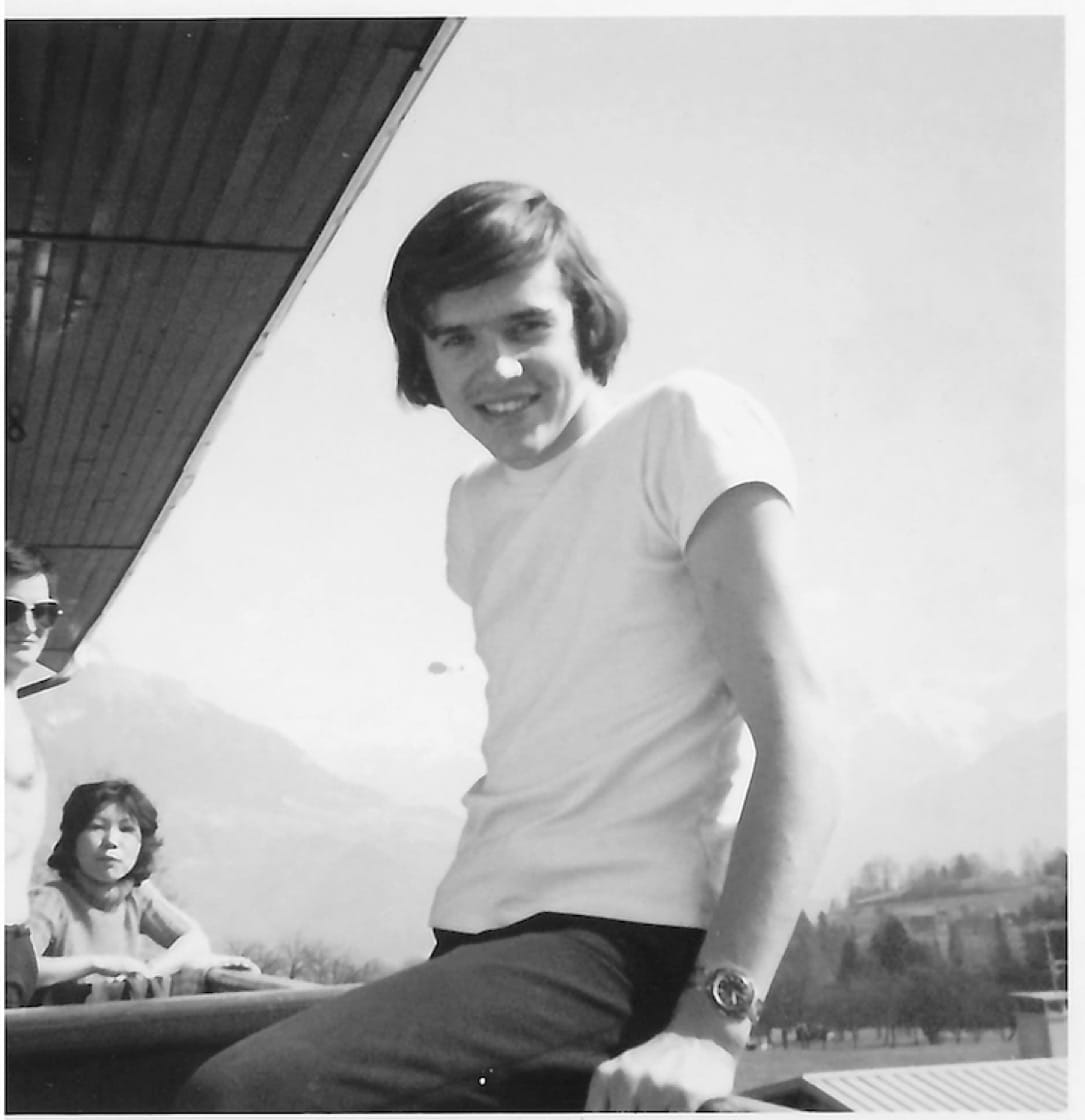
“I think chef Robuchon liked my sense in preparing sauces but also my strong temperament, respectful but always sharing my opinion”.
Coming Into His Own
His path would cross yet again with Robuchon’s when the latter offered him the position of executive chef at the legendary La Tour d’Argent in 1981. “The challenge was huge—a big team, three Michelin stars, a charismatic owner [the late Claude Terrail] and a world-renowned name”, says Bouchet. “But [it was here] that I learned the most about how to be a chef. How to manage a team of 40 persons, how to manage food cost, how to communicate with the clients”.

Dishes that he created in that time, like slow-cooked oxtail with mashed potato and black truffle, encapsulated this culinary philosophy. “The really important thing is to understand the restaurant’s environment. Then choose a produce and highlight it with a sauce. It is very important to keep a good balance in the tastes, to respect the produce and present a story to the guest”.

It was also during this time that his love affair with Japan began, when he was sent to open La Tour d’Argent in Tokyo in 1984. In the three decades that followed, Bouchet’s career would take him often to the Land of the Rising Sun, as a consultant for Cognac companies and later for demonstrations at The Hattori Cooking School and making TV appearances as the owner of hotel Moulin de Marcouze, his own four-star property in Charente-Maritime.
Bouchet opened his eponymous restaurant in the 8th arrondissement of Paris near Parc Monceau in 2004, which quickly earned a Michelin star. In 2013, nearly 30 years after he first set foot in Japan, Bouchet opened his first Japanese outpost in Ginza, which received a two Michelin-star accolade just four months after its launch.


Growing from strength and expanding his empire in Japan, Bistrot Les Copains de Dominique Bouchet in Ginza, which he opened in 2016, was recently awarded Bib Gourmand status in the latest MICHELIN Guide Tokyo. His latest venture is a steak house in the Ishikawa Prefecture named Le Grill Dominique Bouchet Kanazawa.
For all his accolades, Bouchet remains a humble and low-key personality, single-minded not in his pursuit for fame but to cook food and create restaurants that inspire the loyalty of both his guests and his kitchen teams.
“A successful restaurant is, for me, a restaurant with loyal guests and loyal staff. A successful chef is, for me, a chef who knows how to persevere. I don’t know if I can consider myself as a successful chef, I don’t have as many media coverage as others, but I’m proud of what I have achieved in my career”.
This article was written by Rachel Tan, with additional reporting by Mandy Li.



